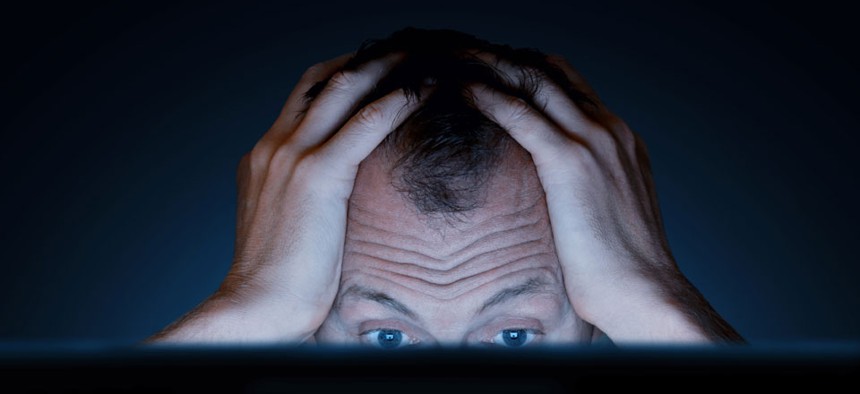
Photobank gallery/Shutterstock.com
How to Stop Technology From Stealing Your Sleep
Here are three technologies (ironically) to help curb your gadget use and get a better night’s rest.
It’s time for us to think of coping with technology as Odysseus dealt with the Sirens. We are in danger of crashing ourselves against the proverbial rocks, heeding the alluring yet treacherous call of like Pinterest, World of Warcraft, or just plain old email. These digital Sirens appear most often at night and are keeping us from a good night’s sleep.
Rest (hah) assured that this poeticism is intentional—but the battle to reclaim our sleep is indeed epic.
I discovered that, like Odysseus, we must use our own, er, devices to find a solution. For some, safe passage requires metaphorically stuffing their ears with wax. Others find the sweet beckoning of Instagram so urgent that they must be physically tied down to the ship’s mast.
Or we must fight fire with fire, tech with tech, to get our seven to eight hours a night.
Some background
I tried to give up technology for NY Public Radio’s Sleep Data project. The goal of the project was to research how much people snooze in “the city that never sleeps.” I had good company. More than 5,000 people agreed to track their sleep; a small sub-group of 300 also joined Team Digital Detox, led by yours truly. For two weeks we kept our cellphones out of the bedroom and banned all screen time one hour before turning in to see if we could sleep more.
Here I am waking up the first morning after digitally detoxing:
https://www.youtube.com/watch?v=49D-zQrHU-U
I’ll skip to the chase here: we increased our sleep by 1.1% or about five minutes per night over two weeks. Hardly mindblowing.
What struck me is just how habitual our gadget usage—especially at night—has become. We put on our pajamas, grab our iPads and laptops and crawl into bed for a few relaxing hours before sleep every evening. We use our cellphones to jot down notes, as alarm clocks. This 21st century routine and constant exposure to blue light is messing with our melatonin and the quality of our sleep once we finally do shut our eyes.
So here are three technologies (ironically) to help curb your gadget use and get a better night’s rest. Choose your level of dependency and curb your compulsions.
Level 1: Somewhat tech addicted
Indications: After dinner you surf Facebook or catch up on Downton Abbey via Amazon Prime.
Rehab: Electronics mute the natural cues our bodies look for about when to rest. So dim the blue light in your life with software like f.lux or Twilight. They warm up your screen display at night to match indoor lighting; as Lorna and Michael Herf, the husband-wife team behind f.lux told me, “every time you get that hit of light it’s like a hit of espresso.” So quit using your phone to check the time in the middle of the night too.
Level 2: My cravings are starting to worry me
Indications: You check email and load up your Twitter buffer right before bed. Then tuck your phone under your pillow for the night.
Rehab: Get tracking. Wear a Jawbone UP or Fitbit to monitor your sleep. Just paying attention to your habits could make you a more conscientious sleeper. Consider kicking off your sleep self-awareness with a digital detox like the one I did. One participant told me, “I even dream about tracking my sleep!” How boring is that? No wonder she slept longer.
Level 3: I have a serious digital dependency
Indications: You play video games until you win “just one.” Even after you finally win one at 2am, you keep playing. At this point you are already going to be exhausted so why not keep going?
Rehab: Download self-diagnosed tech addict David Joerg’s hack. This developer wrote software that defeats his nighttime evil twin by linking his sleep wrist monitor to his computer and setting it to shut him out at curfew time, around 10pm. “Once a minute the program just kills whatever browsers are running on my machine from curfew time until 6am,” he says. The computer changes the curfew time depending on one factor—whether Joerg (a gaming junkie) got enough sleep the night before.
Reprinted with permission from Quartz. The original story can be found here.
(Image via Photobank gallery/Shutterstock.com)






